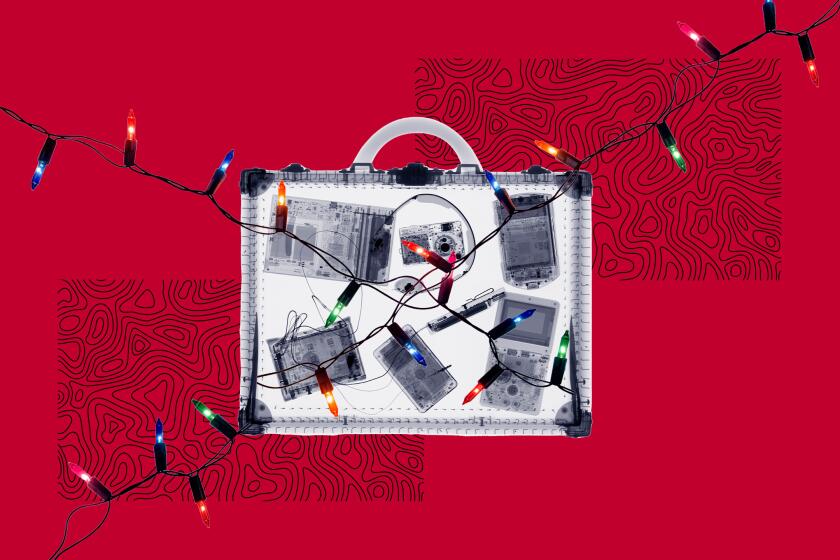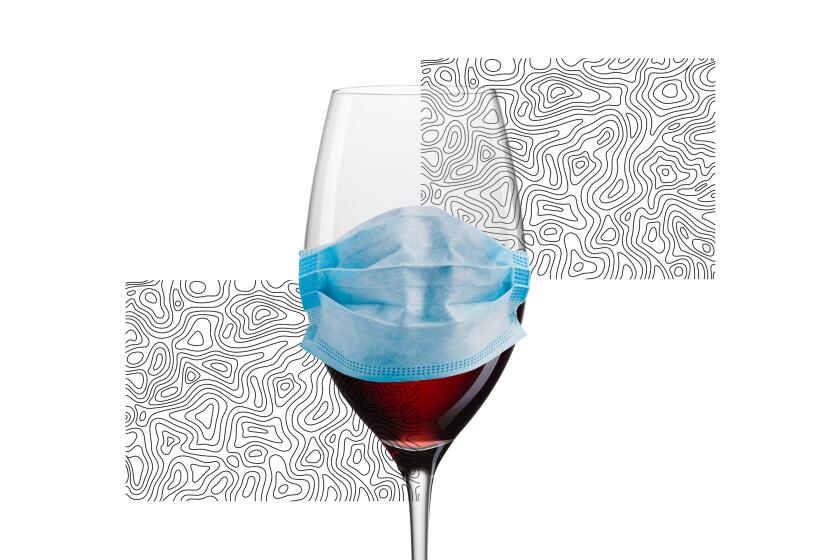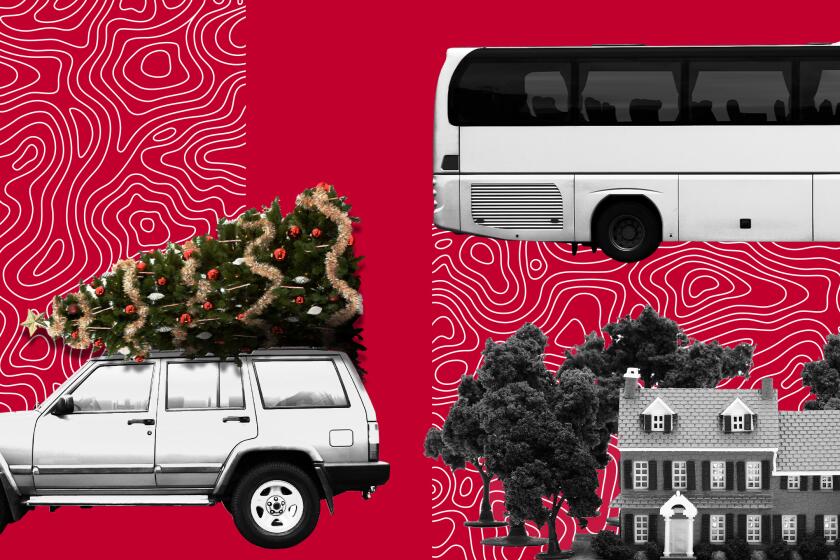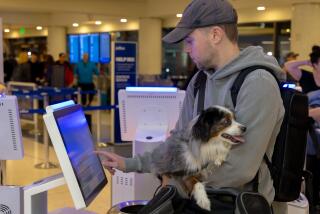Need to fly? 11 things you need to know
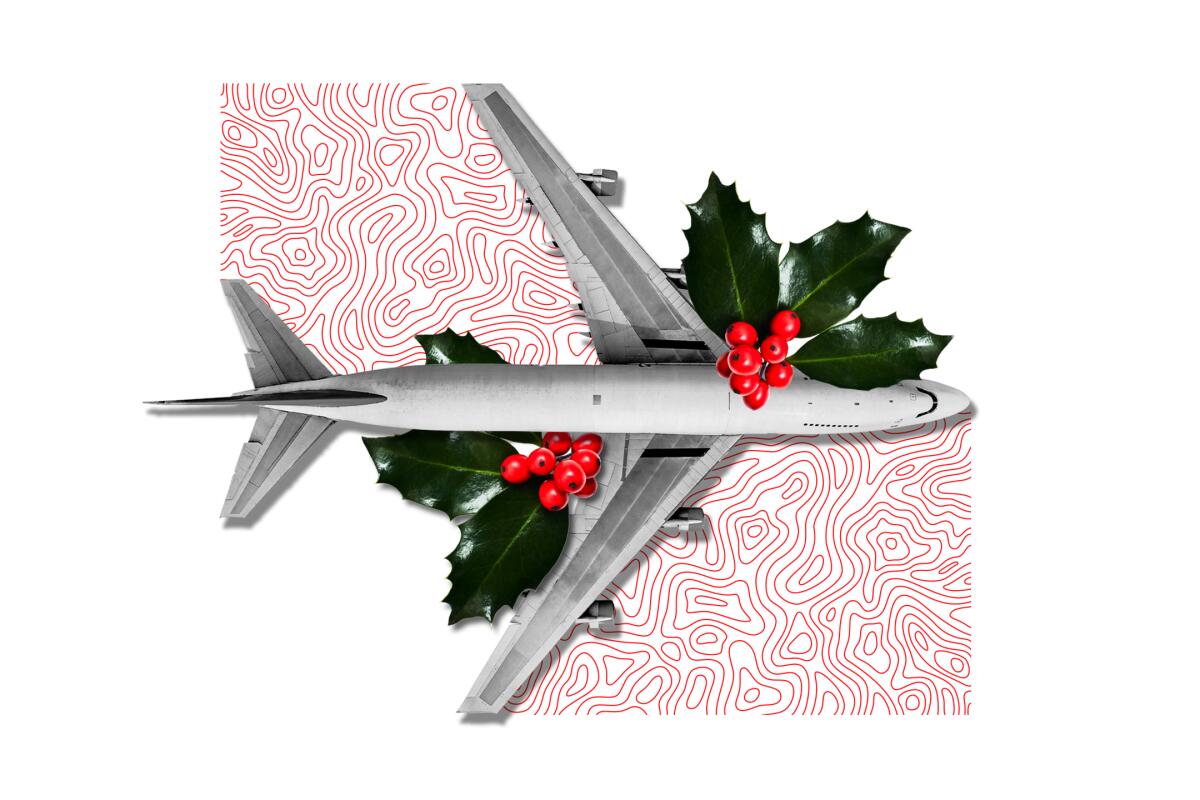
(Ross May / Los Angeles Times; Getty Images)
- Share via
This story is part of a package on holiday travel.
Air travel is increasing, which means prices are rising and middle seats are filling up. Just about every Sunday in October, the Transportation Security Administration counted more than 900,000 passengers for the day. That means the number of people flying has nearly doubled since June. Here are things to know if you’re traveling by plane.
- No matter how elaborate and awkward your in-flight accessories look, nobody will care. Passengers arrive with double masks, gaiters and masks, masks and face shields, extra-long face shields, just about every possible combination. As long as it doesn’t cause a problem for anybody else, it’s all good.
- Some carriers, including Hawaiian Airlines, are boarding planes back to front, which allows for better social distancing.
- The TSA has relaxed its 3.4-ounce limit on liquids when it comes to hand sanitizer. You can bring up to 12 ounces onboard the plane. But you still can’t bring a full water bottle through security.
- Bring plenty of wipes with you. Even though the airline crew has probably already done it, you’ll feel better if you wipe down your armrests, seat and seatbelt, tray table and seatback in front of you.
- If you have an adjustable air nozzle above your seat, point the airflow straight at your head, full strength.
- The days of guaranteed empty middle seats are ending. Southwest Airlines will stop blocking them Dec. 1. Hawaiian Airlines will stop Dec. 15. Alaska and Delta airlines will stop Jan. 6. Most of the other carriers never made that promise or have already returned to filling middle seats.
- Jets do have powerful air filters. The International Air Transport Assn., trade group for the major airlines, issued a report saying it found just 44 known cases of COVID-19 transmission this year. Though there’s debate about studies trying to measure COVID danger, the Journal of the American Medical Assn. said the risk of contracting COVID-19 in flight is lower than in an office building, classroom, supermarket or commuter train.
- Fitting your stuff into a carry-on is a great strategy. It means you won’t have to cluster around the baggage carousel. Any move that reduces your time indoors is a winner.
- Carriers will bring you meals on long-haul flights, but most or all will be prewrapped sandwiches and the like. If you put your mask back on between bites, you won’t be the only one.
- Bring a sweater or sweatshirt. Even if the cabin doesn’t get cool, you may want to lie down if you have a row to yourself. If you have a sweater to lay down first, you’ll be better insulated from random seat germs. When you get home, that sweater goes straight into the laundry.
- Hold your tongue. We all have plenty to complain or commiserate about, but nobody is in the mood to chat onboard these days. Chances are that the quieter you keep, the fewer germs you launch.
More to Read
Sign up for The Wild
We’ll help you find the best places to hike, bike and run, as well as the perfect silent spots for meditation and yoga.
You may occasionally receive promotional content from the Los Angeles Times.
